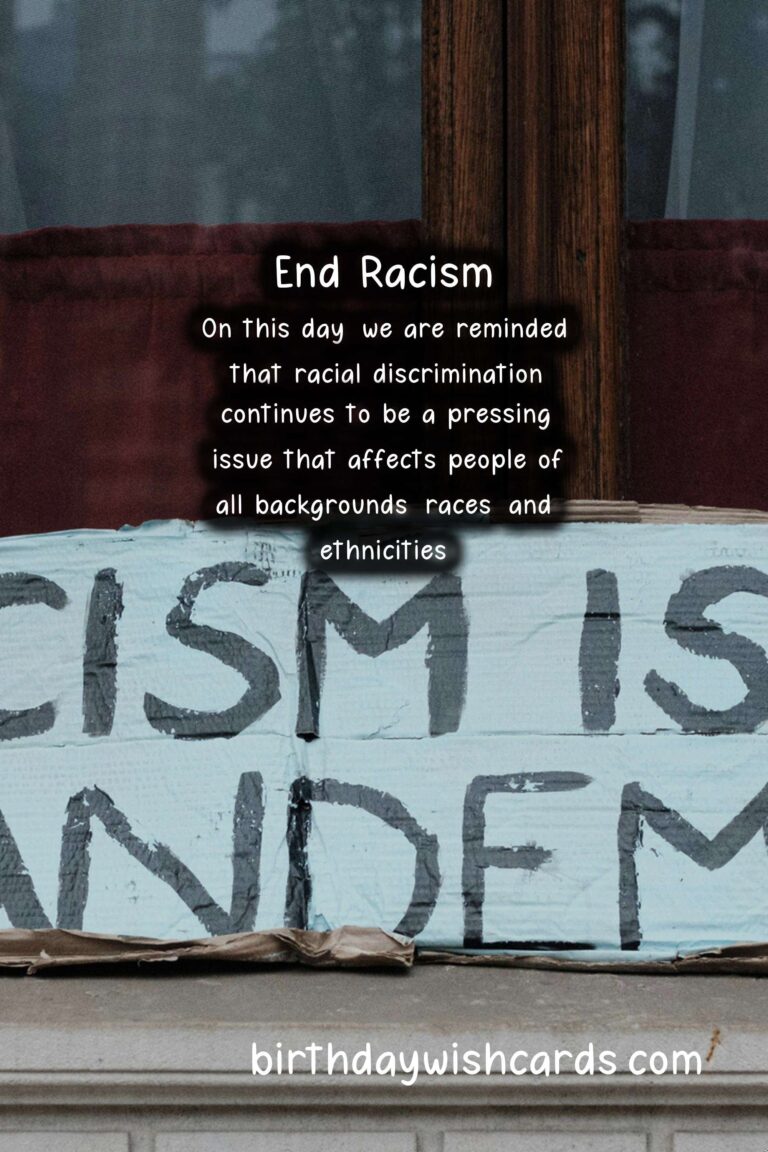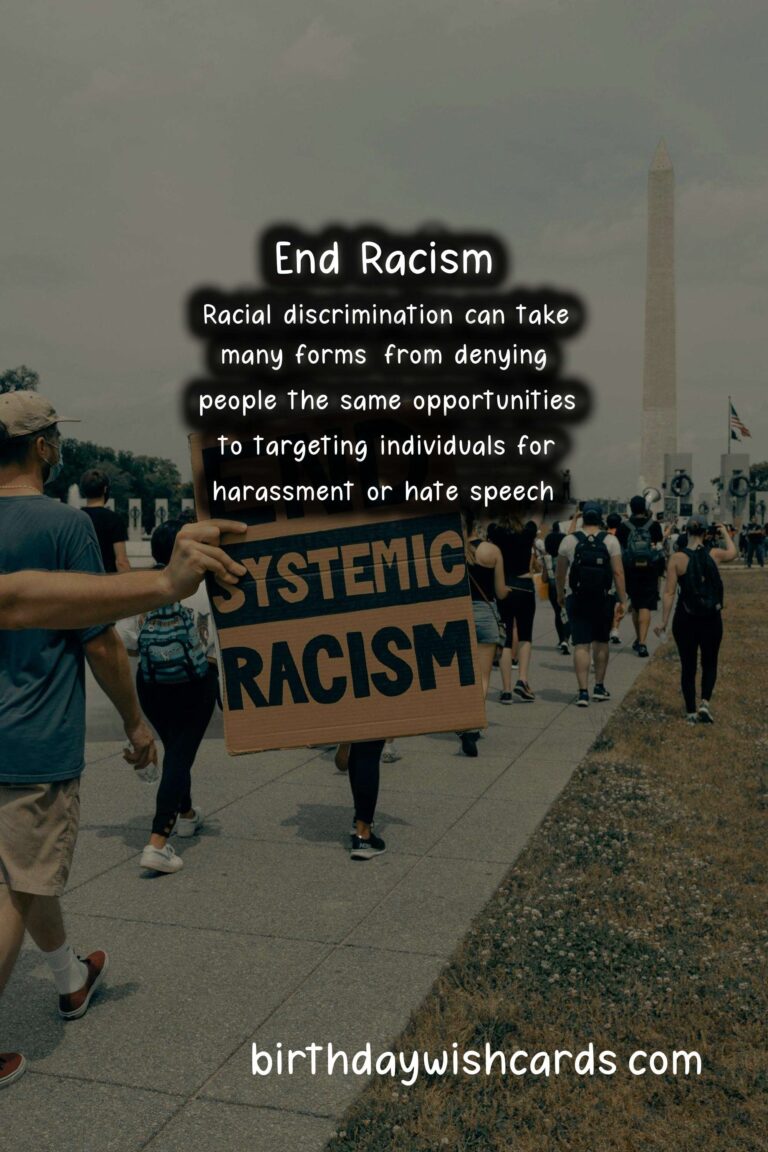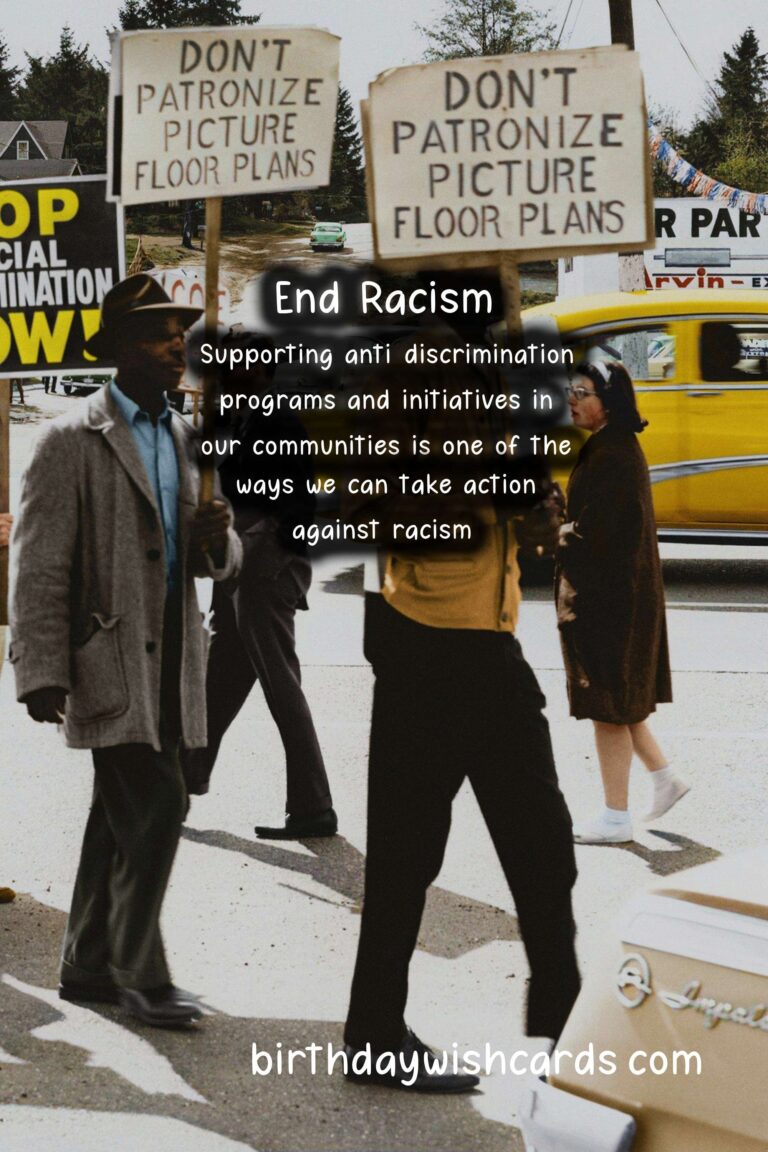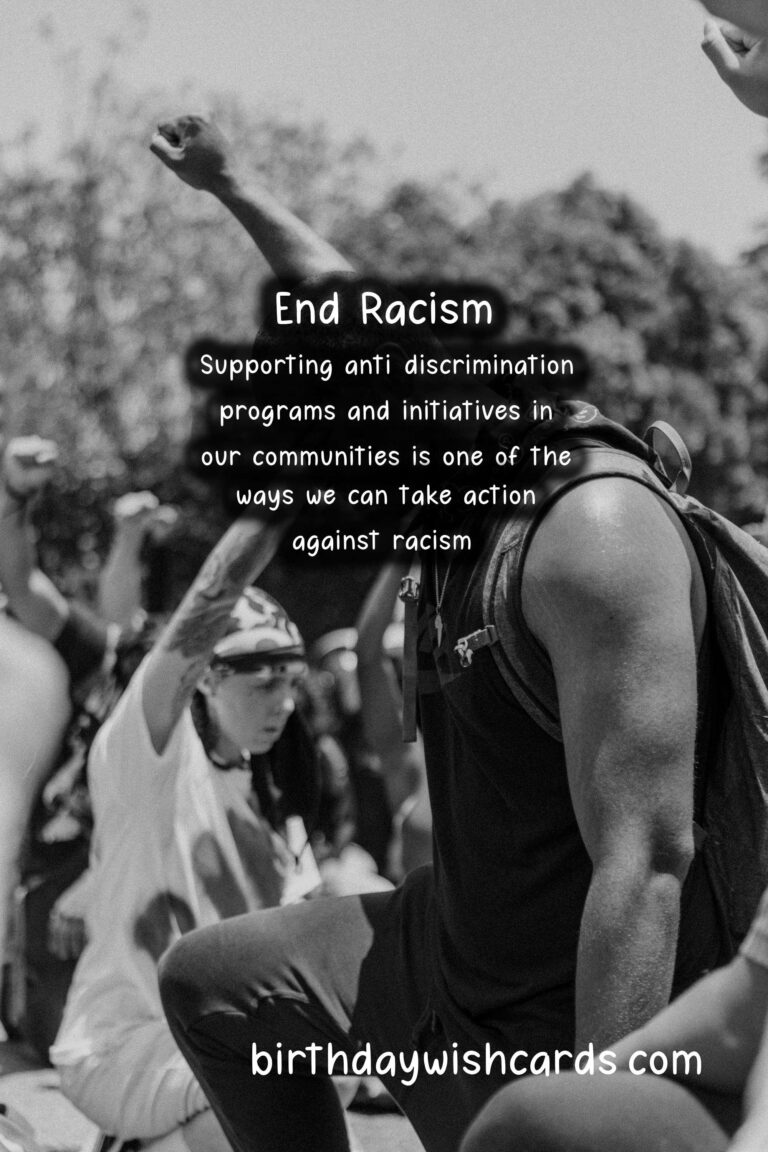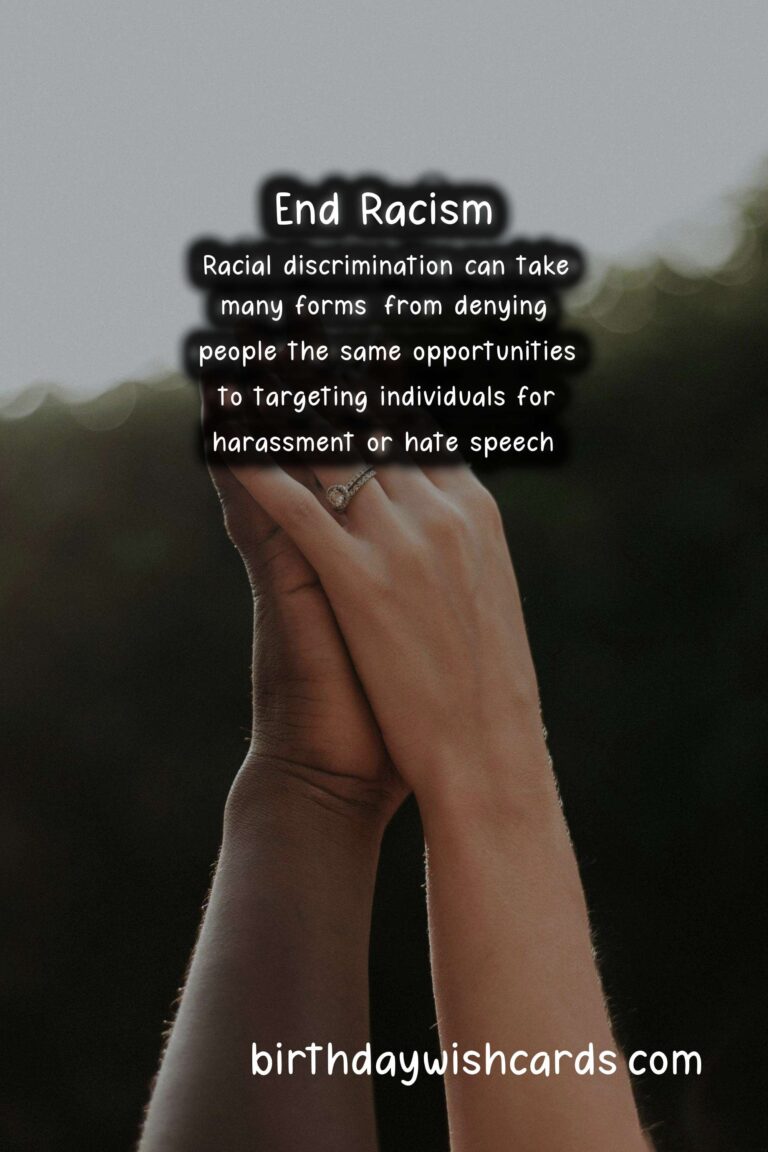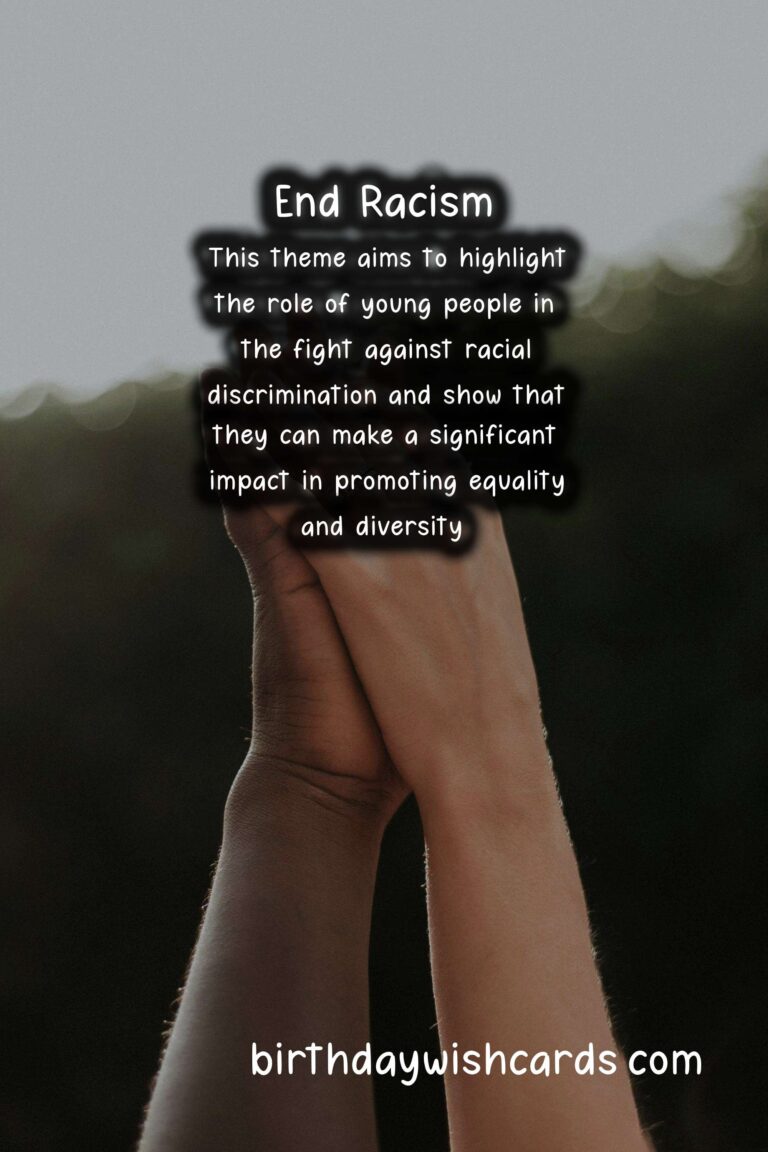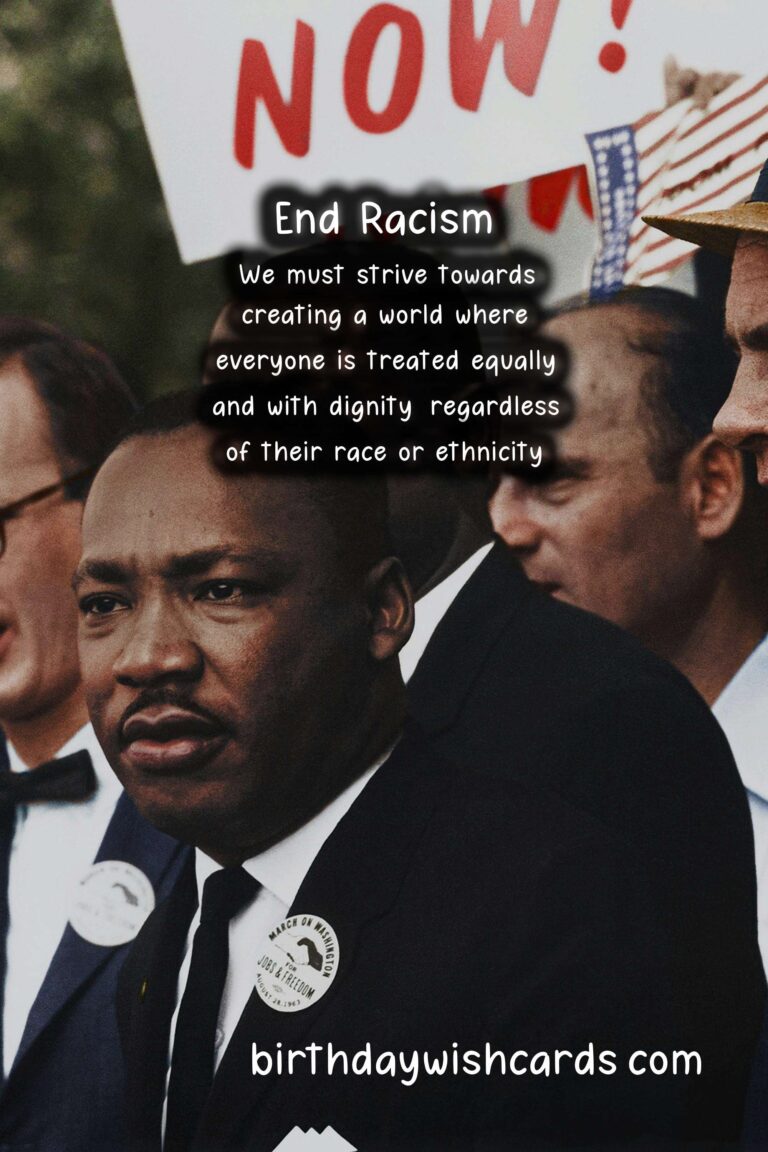 March 21 marks the International Day for the Elimination of Racial Discrimination, a day dedicated to promoting and protecting human rights and standing against racial discrimination. It was established in 1966 by the United Nations to commemorate the 1960 Sharpeville massacre in South Africa, where 69 peaceful protesters were killed by police while demonstrating against the apartheid pass laws.On this day, we are reminded that racial discrimination continues to be a pressing issue that affects people of all backgrounds, races, and ethnicities. It is a global problem that still plagues our society, despite decades of efforts to combat it. As individuals, it is our responsibility to acknowledge the existence of discrimination and take action to eliminate it. We must strive towards creating a world where everyone is treated equally and with dignity, regardless of their race or ethnicity.
March 21 marks the International Day for the Elimination of Racial Discrimination, a day dedicated to promoting and protecting human rights and standing against racial discrimination. It was established in 1966 by the United Nations to commemorate the 1960 Sharpeville massacre in South Africa, where 69 peaceful protesters were killed by police while demonstrating against the apartheid pass laws.On this day, we are reminded that racial discrimination continues to be a pressing issue that affects people of all backgrounds, races, and ethnicities. It is a global problem that still plagues our society, despite decades of efforts to combat it. As individuals, it is our responsibility to acknowledge the existence of discrimination and take action to eliminate it. We must strive towards creating a world where everyone is treated equally and with dignity, regardless of their race or ethnicity.
The Impact of Racial Discrimination
Racial discrimination can take many forms, from denying people the same opportunities to targeting individuals for harassment or hate speech. It can occur in schools, workplaces, and even in public spaces. It not only affects individuals but can also have a long-lasting impact on generations to come. Discrimination can lead to negative attitudes, lack of equal opportunities, and ultimately, exclusion from society, creating barriers for individuals to achieve their full potential.Moreover, racial discrimination is often intertwined with other forms of discrimination, such as gender, age, or disability. For instance, women of colour may experience gender-based discrimination and racial discrimination in the workplace, leading to double discrimination. This further exacerbates the issue and makes it harder to overcome.
A Call for Action
The theme for this year’s International Day for the Elimination of Racial Discrimination is ‘Youth standing up against racism’. This theme aims to highlight the role of young people in the fight against racial discrimination and show that they can make a significant impact in promoting equality and diversity. By empowering the youth to take a stand against discrimination, we can work towards a more inclusive and tolerant society for everyone.
How You Can Participate
First and foremost, it is essential to educate ourselves and others about the issue of racial discrimination. We must understand its root causes, how it affects different communities, and the consequences it has on individuals and society. We can participate in workshops, discussions, and events that raise awareness and provide a safe space for dialogue on racial discrimination.Taking action against racism can also involve supporting anti-discrimination programs and initiatives in our communities. We can also advocate for policies and laws that promote equality, diversity, and inclusion in our workplaces, schools, and public spaces.
Conclusion
This year, let us come together to celebrate diversity and reject discrimination in all its forms. We all have a role to play in promoting equality and protecting human rights. Let us take action and stand up against racism, not just on March 21, but every day, to build a world where everyone is treated with fairness and respect.
Sentences related to March 21: International Day for the Elimination of Racial Discrimination:
- Every year on March 21, we commemorate the International Day for the Elimination of Racial Discrimination to show our commitment to ending discrimination and promoting equality.
- The United Nations has declared March 21 as a day to celebrate diversity and reject discrimination in all its forms.
- On this day, we are reminded of the 1960 Sharpeville massacre in South Africa, which was a turning point in the fight against racial discrimination.
- Racial discrimination can take many forms, from unequal treatment to prejudiced attitudes and beliefs.
- The impact of racial discrimination extends beyond the individuals affected, causing harm to society as a whole.
- This year’s theme for the International Day for the Elimination of Racial Discrimination aims to highlight the role of young people in standing up against racism and promoting a more inclusive society.
- We must all take action to combat racial discrimination, whether it is through education, advocacy, or supporting anti-discrimination initiatives in our communities.
March 21 marks the International Day for the Elimination of Racial Discrimination, a day dedicated to promoting and protecting human rights and standing against racial discrimination. On this day, we are reminded that racial discrimination continues to be a pressing issue that affects people of all backgrounds, races, and ethnicities. It is a global problem that still plagues our society, despite decades of efforts to combat it. As individuals, it is our responsibility to acknowledge the existence of discrimination and take action to eliminate it. We must strive towards creating a world where everyone is treated equally and with dignity, regardless of their race or ethnicity. Racial discrimination can take many forms, from denying people the same opportunities to targeting individuals for harassment or hate speech. It can occur in schools, workplaces, and even in public spaces. Moreover, racial discrimination is often intertwined with other forms of discrimination, such as gender, age, or disability. For instance, women of colour may experience gender-based discrimination and racial discrimination in the workplace, leading to double discrimination. The theme for this year’s International Day for the Elimination of Racial Discrimination is ‘Youth standing up against racism’. This theme aims to highlight the role of young people in the fight against racial discrimination and show that they can make a significant impact in promoting equality and diversity. We all have a role to play in promoting equality and protecting human rights. Racial discrimination not only affects individuals but can also have a long-lasting impact on generations to come. Supporting anti-discrimination programs and initiatives in our communities is one of the ways we can take action against racism. 
